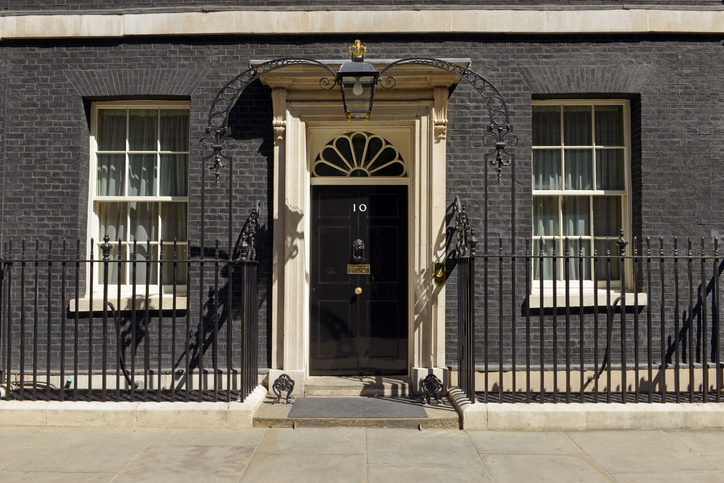In the wake of triggering Article 50, one of the most historic events in the country’s history, the question on the lips of the entire business community is ‘what happens next?’
The outcome of Brexit will affect the fortunes of the UK economy now and in the future, and businesses are calling for urgent guidance on how to prepare. However, before firms can understand the full impact of life after Brexit, they need to consider the scope of the Article 50 negotiations and whether it will be possible to achieve trade deals with EU member states by April 2019. It is a very real possibility that a trade agreement may not be reached within the two-year timeframe and businesses must take action now to mitigate their risks.
Divorce and future trade
There are two sets of negotiations to be progressed – the withdrawal or ‘divorce’ agreement with the EU and future trade deals with each of its member states – both of which will determine the trading landscape for businesses in the future. In her Article 50 letter, prime minister Theresa May referred to ‘a deep and special partnership’ with the EU and to reaching ‘a comprehensive agreement within the two-year period’. The letter also made seven references to negotiating new trade agreements alongside the withdrawal agreement. It is clear that the UK government had hoped that both sets of negotiations could run in parallel.
However, the EU council has since provided draft negotiating guidelines indicating that it is unwilling to start both sets of negotiations straight away. Instead, the guidelines stipulate that the EU will only consider the future relationship between Britain and EU ‘when sufficient progress has been achieved’ with its withdrawal agreement. This is disappointing but not altogether unexpected news for UK businesses. Many people believe that running both sets of negotiations at once is the only way to get through everything in the two-year time period. As a result, UK businesses must now prepare for the eventuality that trade agreements are unlikely to be in place by March 2019.
Furthermore, the EU Parliament has passed another resolution in respect of what it expects from the Brexit negotiations. This is significant because, under Article 50, the EU parliament has a right to veto the final deal. If anything, this resolution is taking an even harder line than the negotiating guidelines. It reinforces the position that future trade discussions can only take place after the withdrawal arrangements are completed. The resolution was passed by a significant majority of more than 70 per cent of MEPs. It is noteworthy that 80 out of a total 96 German MEPs were among those who passed the resolution suggesting that David Davis’ argument that the German car industry will force a deal is unlikely.
For UK businesses that are uncertain about what the future holds, clarity about the likely pathway for the negotiations are provided by these EU resolutions. Despite the UK government’s strong words about the need to progress trade talks as soon as possible, the EU Parliament is standing firm. Based on this, UK businesses should prepare for the eventuality that trade agreements are unlikely to be in place by March 2019.
How much time is available to negotiate?
With negotiations on this scale, the withdrawal arrangements need to be agreed and ratified by the UK government, the EU council and the EU parliament. In addition, if individual trade agreements are treated as ‘mixed agreements’ under EU law, they will also have to be ratified by the national governments of the 27 EU member states; following a similar process to last year’s Canadian trade agreement. Michel Barnier, European chief negotiator for Brexit, has previously said that there will be less than 18 months in total to reach an agreement to allow time for any potential ratification. Regardless of this timeframe, if all parties fail to come to a resolution, the two-year process can only be extended by unanimous agreements from all EU countries, a feat that is highly unlikely and could cause a prolonged period of uncertainty for businesses.
Where are the key political risks?
A row over the withdrawal agreement could derail trade talks in their early stages and it has been estimated that such disruption could cost the UK economy in the region of £60 billion. As each of the 27 remaining member states has its own domestic political concerns to consider in formulating its approach to the negotiations, the process is bound to be costly, drawn out and extremely complicated. Additionally, the possibility that the European parliament might veto any agreement cannot be overlooked – whether this is on policy grounds, as part of an inter-institutional power play, or due to differences between political parties represented in the European parliament and national governments.
The European parliament must give its consent to the final deal but no provision has been made for its involvement throughout the negotiations. European parliament’s Brexit co-ordinator, Guy Verhofstadt, has stated that he expects it to play a significant role in shaping the final deal. Failing to allow significant time and resource for its involvement could back-fire and see the withdrawal agreement exceed the Article 50 time limit. Additionally, with 15 elections planned during the two-year process, there is a strong possibility of an increasing disconnect between the party-political makeup of some of the national governments and members of the European Parliament from those states.
How should businesses act now?
At times of uncertainty, there is usually some opportunity and it makes sense for UK businesses to approach the situation in this way. Those businesses that take action now to prepare and plan for the uncertainty and volatility that markets are likely to experience in the months ahead could find themselves ahead of the curve when Brexit eventually takes effect. In the meantime, it is necessary to keep a close eye on business management and invest in ways that allow the business to respond quickly to issues or opportunities as and when they arise. With a trade deal unlikely to be reach within two years, any fallout from the Article 50 negotiations must be approached with true entrepreneurial spirit in order to survive and prosper in the post-Brexit future.
Adam McGiveron is head of advanced manufacturing and Brexit specialist at Shakespeare Martineau.





